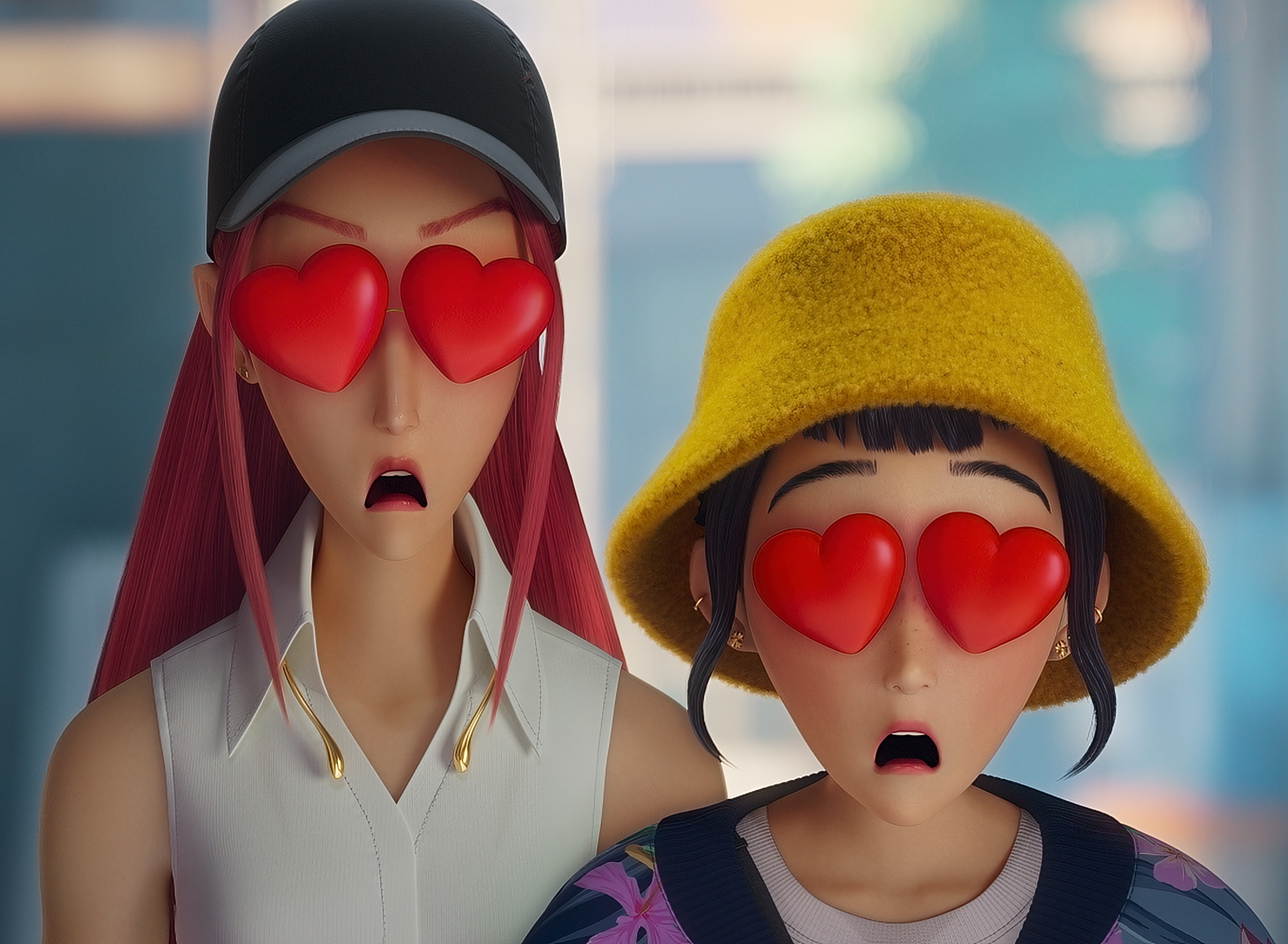KPop Demon Hunters
KPop Demon Hunters
VERDICT: Wit, style, and some inescapably catchy songs has earned this Sony-Netflix animated feature a well-deserved global fandom.
Blending female empowerment, satirical jabs at the music business (and its fandom), and undeniably catchy pop songs, all in the vein of cult classic Josie and the Pussycats, KPop Demon Hunters has literally taken the world by storm, racking up Netflix views across multiple territories and even garnering the streamer its first time topping the U.S. weekend box office, thanks to the theatrical release of a sing-along version.
It’s a film that offers up an inherently ludicrous premise — pop stars with a secret agenda to protect the world from demons — but takes it completely seriously, with fictional chart-toppers Huntr/x just the latest in a series of musical trios that have fulfilled this role over the centuries. Our current guardians are Mira (voiced by May Hong), the princess with a tough attitude; bubbly Zoey (Ji-young Joo); and Huntr/x’s leader Rumi (Arden Cho), whose late mother was in the 1980s iteration of the anti-demon forces.
Huntr/x has nearly succeeded in creating the Golden Honmoon, a barrier that will ward off the demons for eternity, only for Rumi to find herself losing her voice because of a secret she’s been hiding from everyone, including her bandmates: she’s half-demon herself, as evidenced by the visible “patterns” on her arm that she keeps under sleeves. (This signifier leads to lots of talk about “overcoming patterns,” a neat bit of therapy-speak.)
Also complicating matters for Huntr/x is the sudden arrival of boy band Saja Boys, who immediately rival the girl group’s hold on the public. They are, of course, demons in disguise, and their lead singer Jinu (Ahn Hyo-seop) covertly bonds with Rumi, even keeping her secret about her lineage. But is Jinu genuinely in love with her, or merely manipulating her in an effort to crush Huntr/x and enable a demon takeover?
The “be your true self” storyline has been a staple of animated features for decades, but it’s delivered with a real kick here; this is an American production that understands the impact of Asian pop culture, from the character design (veering between photo-realism and cartoonish exaggeration) to the inescapably earworm-y pop singles, particularly Huntr/x’s “Golden” (a real-world chart-topper) and the Saja Boys’ infectious “Soda Pop.”
It also helps that KPop Demon Hunters is probably the year’s funniest animated feature, from the interactions between the three distinct personalities of our heroines to the portrayal of over-the-top fandom, with pop devotees of all ages losing their minds over every new single and photo op and social-media posting. (It’s also worth noting that, despite the appearances of Daniel Dae Kim, Ken Jeong, and Joel Kim Booster in secondary roles, this is the rare contemporary animated film that isn’t reliant upon celebrity voice-casting to get attention.)
KPop Demon Hunters joins a proud cinematic tradition of female action trios, from Charlie’s Angels to Peking Opera Blues. And while it’s a film that’s very much of the moment, pop satires from The Girl Can’t Help It to A Hard Day’s Night to Pop Star: Never Stop Never Stopping (to the aforementioned Josie and the Pussycats) have proven to have shelf lives that extend past their particular zeitgeists, so don’t be surprised if Huntr/x outlasts some of the real-life groups that inspired it.
Directors: Chris Appelhans, Maggie Kang
Screenwriters: Danya Jimenez & Hannah McMechan and Maggie Kang and Chris Appelhans
Cast: Arden Cho, May Hong, Ji-young Yoo, Ahn Hyo-seop, Yunjin Kim, Ken Jeong, Lee Byung-hun, Daniel Dae Kim, Joel Kim Booster, Liza Koshy
Producer: Michelle L.M. Wong
Production design: David Bleich, Helen Mingjue Chen
Editing: Nathan Schauf
Music: Marcelo Zarvos
Sound design: Michael Babcock, re-recording mixer/supervising sound editor/sound designer
Production companies: Netflix, Sony Pictures Animation
In English
95 minutes

